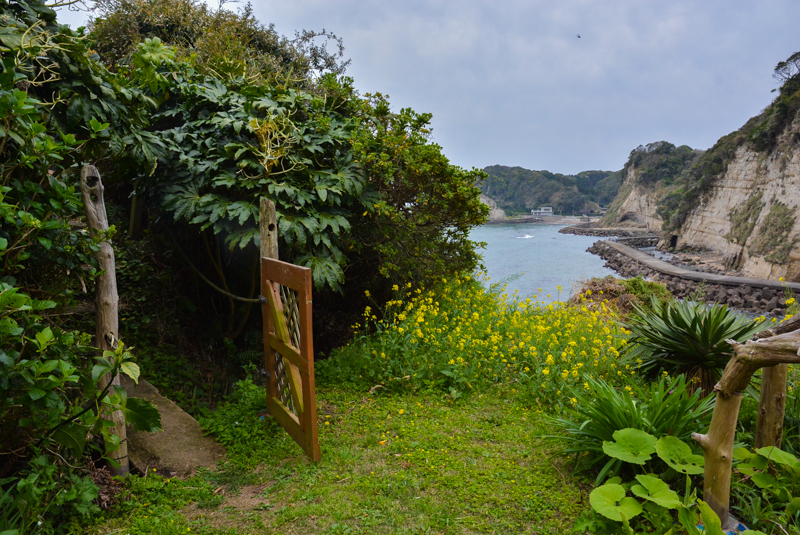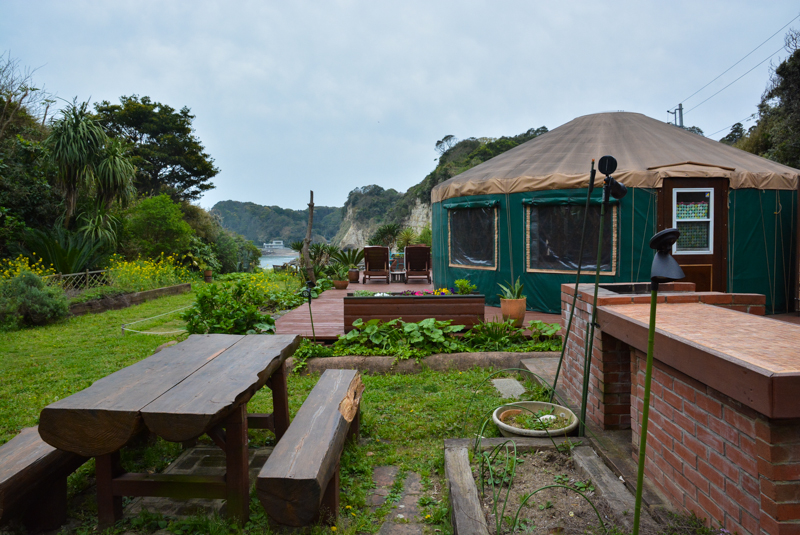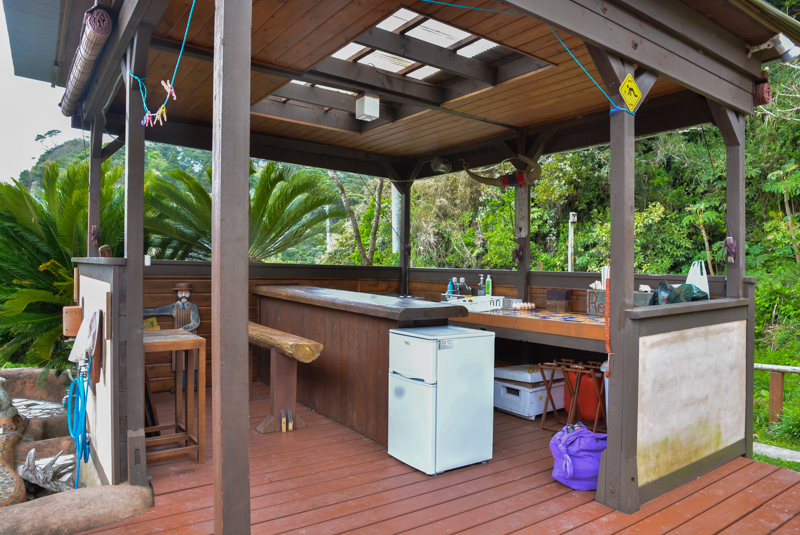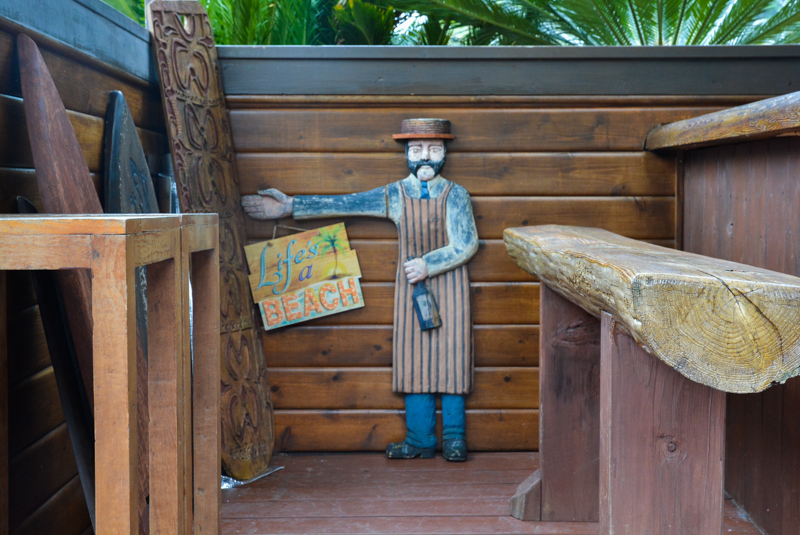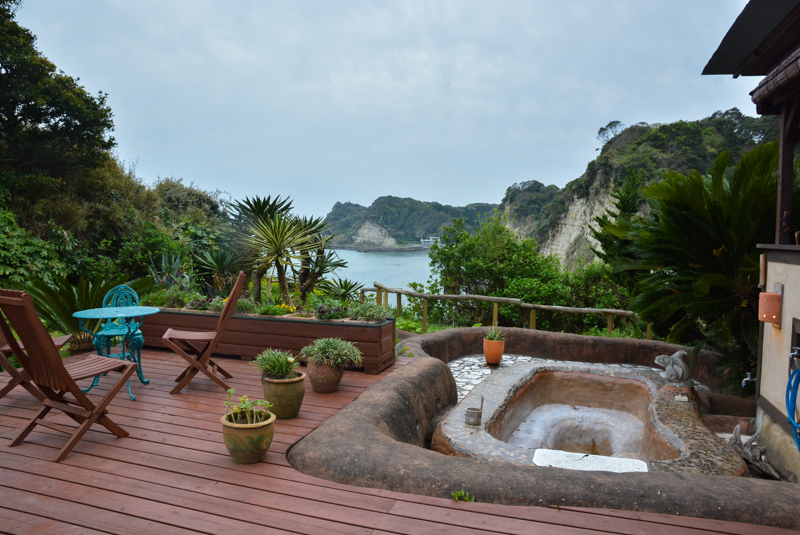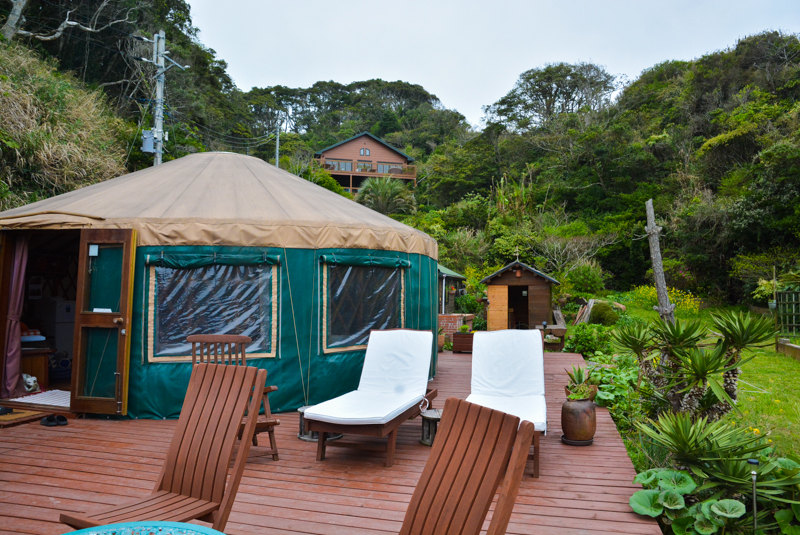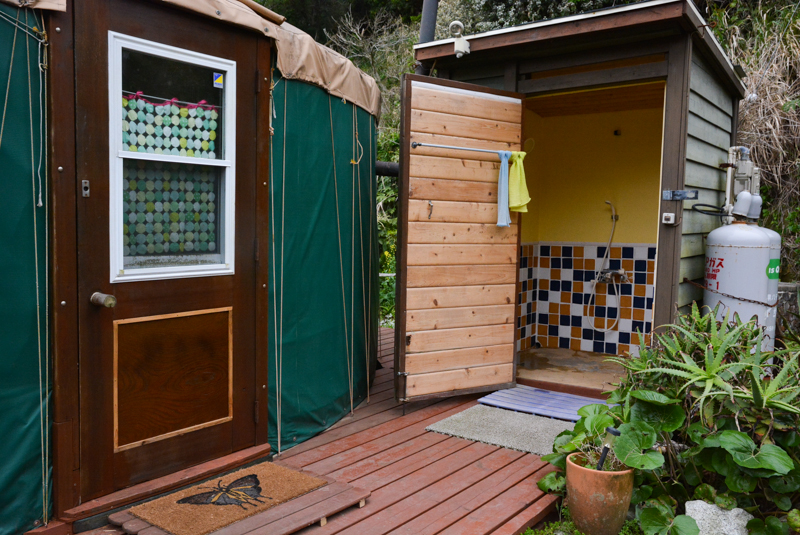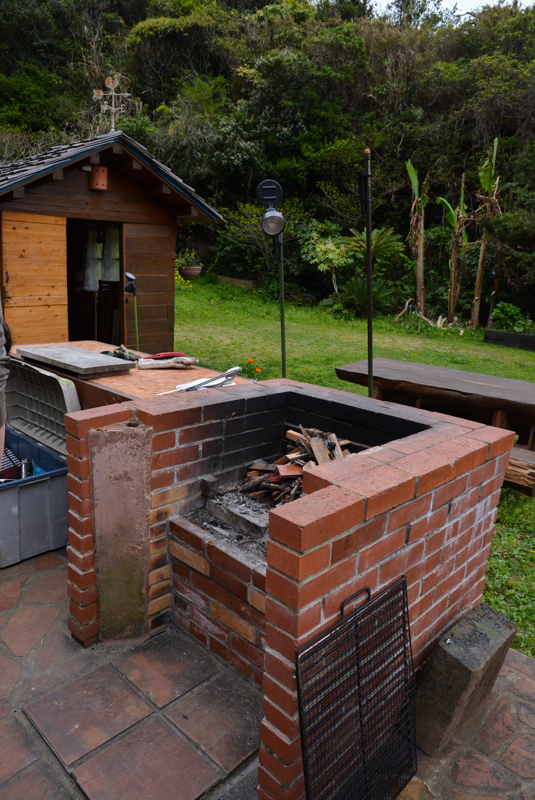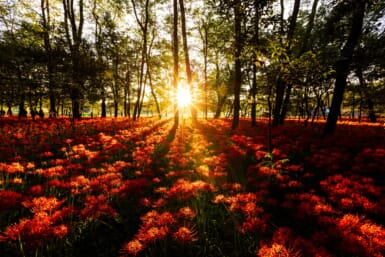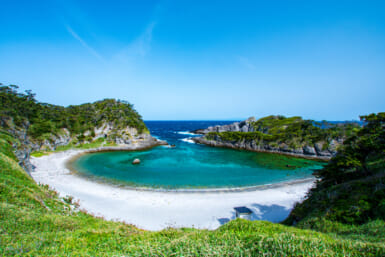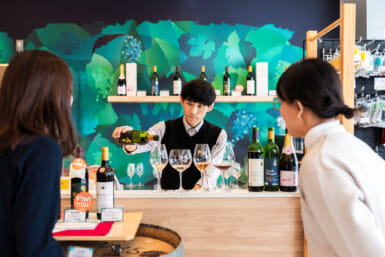Head down Chiba’s Boso Peninsula for a getaway experience with a few unique twists.
Almost a decade ago, Marcus Leach left his full-time career in downtown Tokyo to pursue an easier, laid-back life. For a while, he had it in mind to finally complete a pet project: creating a private campsite overlooking the ocean, a slice of heaven for escaping a hectic life. Over the course of several years, Leach and his wife, Kyoko, worked at the dream – which consisting of importing every piece of material from his homeland in Canada, as well as digging and constructing the site – and around 2010, it was fully realized. By 2012, it was opened to the public for rent.
The Leaches’ property sits atop a slope overlooking the coast near Ohara, Chiba, in a small town with a population of no more than a few thousand retired folks, a couple of grocery stores, and a handful of temples. It’s quiet, spacious, and hugged by beach trees and foliage, with a sharp cliff hanging over a sidewalk that lines the coast, grey waves teasing the edges. Their lodge overlooks the campground property, with a winding driveway up to their land.
It’s hard not too feel a touch of excitement when pulling up to the place. Their large, dark green yurt – built entirely by the Leaches, with manuals and tutorials at hand for guidance – is in the center of a large wood patio, tables and chairs out front, in front of an outdoor rotemburo, which Marcus explains he made entirely himself “out of old and recycled cans.” It could fit ten people who don’t mind getting a little bit cozy. Beside it is a cabana-style outdoor kitchen, with an island, outdoor sink, and countless pots, pans, and dishes for prepping or cooking anything (no more Japanese-curry-camping-diet!), as well as a pantry filled with small ingredients and spices in the main building. The outdoor space even has a string of Christmas lights that come on once twilight has draped the coast.
Behind the yurt, guests will find a shed filled with bikes and outdoor equipment, a private bathroom that one doesn’t feel at all afraid of visiting in the middle of the night, and an area for building a campfire and grilling meat, equipped with buckets of coal, fluid, kindling, and wood. Next to that, a tiled shower, with amazing pressure and better drainage than your average Tokyo hostel.
As for the yurt itself? It’s 24 feet in diameter, for starters, making it already larger than those at National Parks in the US. It has room for half a dozen to sleep comfortably, and plenty of floor space for larger groups, strings of lights, lamps, an electric heater, a wood stove, another kitchen (acting more as a “wine station”), instruments, games, books, towels, blankets, chairs, a skylight – as well as a giant screen television and complete sound system. You will have no worries about rain ruining your camping trip (at this point, is it really camping?).
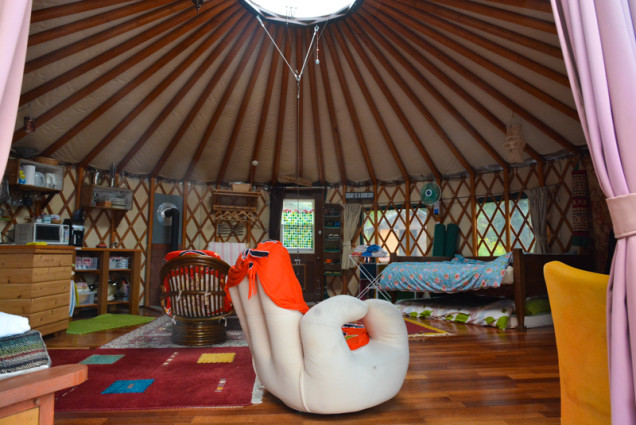
Guests are welcome to frolic in the garden and small lawn alongside, and venture on their path to the property’s own “Stonehenge,” a small grove where the Leaches built benches and a fire pit for larger fires at night, when weather conditions allow.
You can tell it’s a true labor of love when, while giving the tour, Marcus and Kyoko patiently answer all questions and give a complete rundown about operating the equipment, using the facilities, starting fires, and caring for the place. Even though it’s clear that they have both gone through the routine thousands of times, they’re still enthusiastic about sharing their dream property with guests. They both rattle off a number of things to do locally – bowling, hiking, a seawalk, star gazing, golfing, surfing, or even octopus fishing – and are more than happy to be as hands-on as guests feel comfortable with during their stay.
For naysayers who aren’t ready to take the leap from established hotel chains, their customer service and attention will cinch the deal to book a weekend at their yurt. In addition to all of the amenities you’d expect to find on a hotel bathroom counter (as well as some of the luxuries you might leave behind when camping), the Leaches offer pick-ups from the train station and can drive guests to nearby grocery stores, come by a couple of times throughout the day to replenish firewood, get the rotemburo heated up and going, help out with cooking, and are available until late night for any questions that might come up.
Recently named one of the “Top 5 Airbnb Places to Stay in Japan” by Vogue Japan, the prices will vary depending on the size of group and the days chosen. The back-to-back bookings several months in advance only confirm that a place like this, seemingly too good to be true, exists as a small heaven on earth, and is more than worth the wait.
Book on their homepage: http://www.reefbreakresort.com/
Reviews and a closer look: https://www.facebook.com/Reef-Break-Resort-546351028727305
Photos by Natalie Jacobsen

